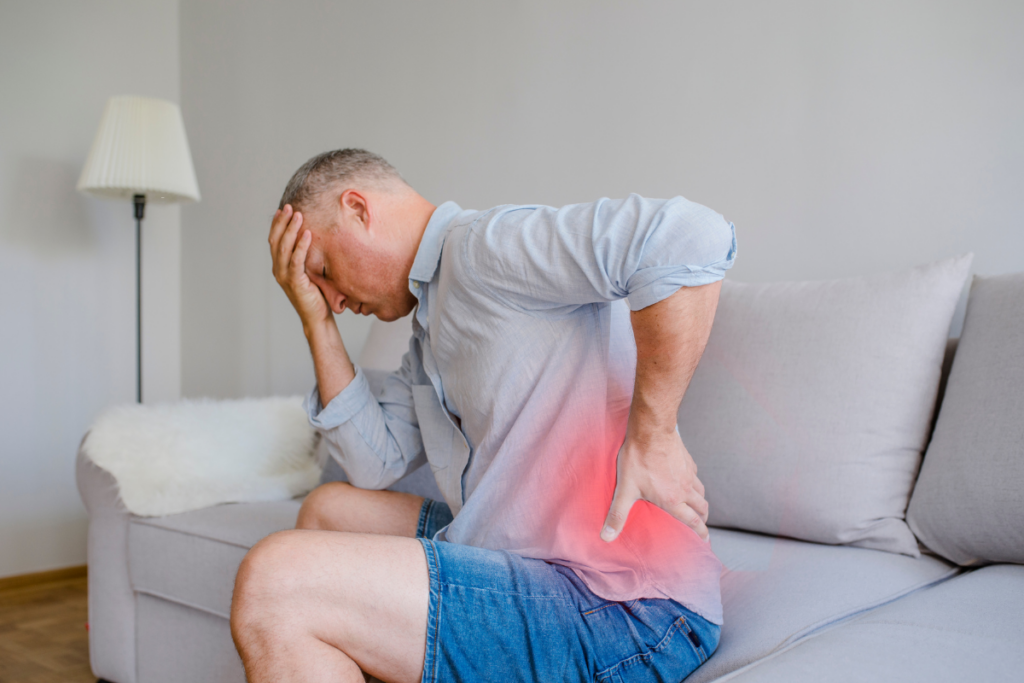Chronic pain is exhausting—both physically and mentally. While treatments like Robotic Muscle Therapy (RMT) offer hope and real relief, the psychological challenges associated with chronic pain recovery often go unnoticed. Addressing these mental hurdles is essential to achieving holistic and long-term healing.
In this blog, we explore the psychological barriers that may arise during recovery from chronic pain and provide actionable steps to overcome them, fostering a balanced mind-body recovery process.
The Psychological Toll of Chronic Pain
Chronic pain is not just a physical issue; it affects nearly every aspect of life, leading to:
Cognitive Overload: Ongoing pain drains mental energy, making it harder to focus, make decisions, or maintain a positive outlook.
Anxiety and Fear of Movement (Kinesiophobia): Chronic pain patients often fear reinjury or worsening their condition, which leads to reduced activity and prolongs the recovery process.
Depression and Isolation: Prolonged pain can lead to feelings of helplessness, frustration, and withdrawal from loved ones.

Mental Barriers During Recovery
When beginning treatments like RMT, mental barriers can hinder progress. Common challenges include:
- Doubt in Treatment Efficacy: It’s natural to feel skeptical about new therapies, especially if previous attempts have failed.
- Impatience for Results: While recovery from chronic pain is typically gradual, the desire for immediate relief often leads to frustration and non-compliance with treatment plans.
- Emotional Dependence on Pain: Over time, some individuals inadvertently associate their identity with pain, making it psychologically difficult to imagine a life without it.

Overcoming Mental Challenges
- Adopt a Growth Mindset
Recovery isn’t linear; it has ups and downs. Focus on progress, not perfection. Celebrate small victories, such as reduced pain during specific activities or increased mobility after an RMT session. - Prioritize Mental Well-being
Incorporate these techniques into your routine:- Mindfulness Meditation: Practices like deep breathing or guided meditation can help you stay grounded and reduce pain-related stress.
- Journaling: Documenting your thoughts and progress helps track mental patterns and provides perspective during tough times.
- Set Realistic Goals
Work with your therapist to set achievable milestones. Instead of aiming to be completely pain-free immediately, focus on functional goals, such as walking longer distances or sitting more comfortably. - Surround Yourself with Support
Engage with friends, family, or chronic pain support groups. Sharing your journey can reduce feelings of isolation and provide motivation when recovery feels challenging. - Trust the Process
Therapies like Robotic Muscle Therapy precisely target the root causes of pain. While relief may take time, cumulative improvements often result in significant, long-lasting benefits. Keep communication open with your therapist to adjust treatments as needed.
How Robotic Muscle Therapy Supports Mental Recovery
RMT addresses not only the physical causes of pain but also the associated psychological challenges:
- Anxiety Relief: By alleviating pain at its source rather than merely masking it, RMT helps reduce overall stress levels.
- Renewed Confidence: As mobility and function improve, you regain trust in your body’s ability to heal and perform.
- Routine and Structure: Regular therapy sessions provide a sense of stability and structure, which helps maintain consistency and commitment to recovery.
Take Charge of Your Recovery Journey
Recovering from chronic pain is as much a mental process as it is a physical one. Addressing mental challenges head-on and pairing that effort with effective therapies like Robotic Muscle Therapy can lead to comprehensive and lasting recovery.
Is chronic pain affecting your life? Robotic Muscle Therapy can help. Call 248-985-9888 today to schedule an appointment.
